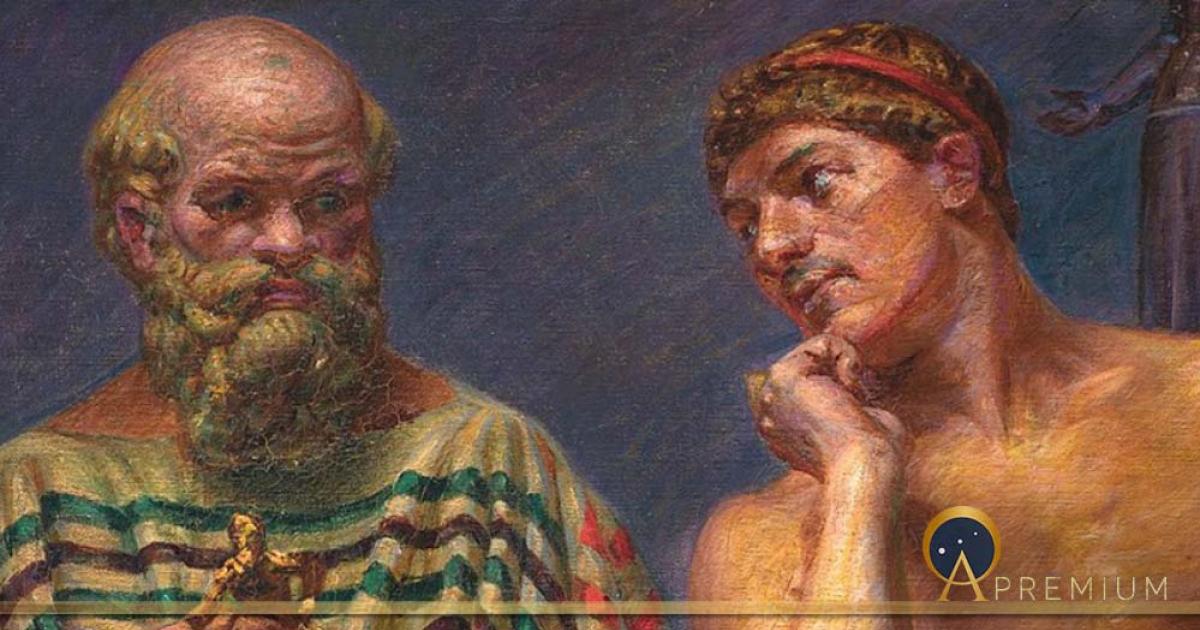
Athens’ Alcibiades: Charming Playboy, Conniving Politician Or Treacherous Opportunist?
Pericles and Alcibiades were both descendants of the Alkmeonidai, an ancient Athenian aristocratic family. Pericles (495 – 429 BC) was an influential Athenian politician and general in the fifth century BC, who led Athens into the Golden Age. His cousin’s son Alcibiades, (450 – 404 BC) whom he had adopted, also became a general and a politician, but had a dubious legacy, with fluctuating moments of glory and treachery in his love-hate relationship with Athens.
Pericles promoted the arts and literature in Athens through his support for the construction of the Parthenon on the Acropolis, after the devastation caused during the Second Persian invasion in 480 BC. The Parthenon housed a massive gold and ivory statue of Athena and was adorned with elaborate sculptures and friezes depicting scenes from Greek mythology, most created by Pericles’ friend, the sculptor Phidias. This same Acropolis project included, among other things, a Victory Temple: the Athena Nike and the Propylaea (the Acropolis’ entrance gateway), both of which were much more expensive than any previous buildings in the city. Under Pericles' leadership, Athens and its extended domain flourished, and Athens became Greece's political and cultural center, sandwiched in a time period between the end of the Greco-Persian and the start of the Peloponnesian wars.

Young Alcibiades with his hand on a friend’s shoulder, and Pericles and his mistress Aspasia admiring sculptor Phidias’ Parthenon frieze, by Sir Lawrence Alma-Tadema (1868) Birmingham Museum & Art Gallery (Public Domain)
Alcibiades was the son of Cleinias, a cousin of Pericles. Born in Athens around 450 BC, Alcibiades was only a boy when Pericles adopted and raised him, shortly after his father's death in the Battle of Coronea. Raised as Pericles’ ward, it is said that Alcibiades rose to prominence due to his wealth, good looks and extravagant lifestyle. Later, during the Peloponnesian War in the fifth century BC, Alcibiades became a general like Pericles before him. However, unlike his famous kin, Alcibiades developed a reputation for cunning and treachery.
The Charming Youth: Alcibiades
In The Life of Alcibiades, Plutarch writes Alcibiades was a beautiful child, yet even at a young age, Alcibiades was also noted for his confidence and quick speech which was accentuated by his lisp. Aristophanes, the comic playwright, makes fun of his speech impediment by remarking, " That lisp of Alcibiades hit the mark for once!" The mere fact that Aristophanes took the time to mock Alcibiades’ speech indicates that even as a child, Alcibiades was already well-known in Athens for his charm and beauty.
Like this Preview and want to read on? You can! JOIN US THERE ( with easy, instant access ) and see what you’re missing!! All Premium articles are available in full, with immediate access.
For the price of a cup of coffee, you get this and all the other great benefits at Ancient Origins Premium. And - each time you support AO Premium, you support independent thought and writing.
Martini Fisher is an Ancient Historian and author of many books, including "Time Maps: Australia, Early Sea Voyage and Invasions" / Check out MartiniFisher.com
Top Image: Socrates and Alcibiades by Kristian Zahrtmann (1910) Statens Museum for Kunst (Public Domain)
By: Martini Fisher















